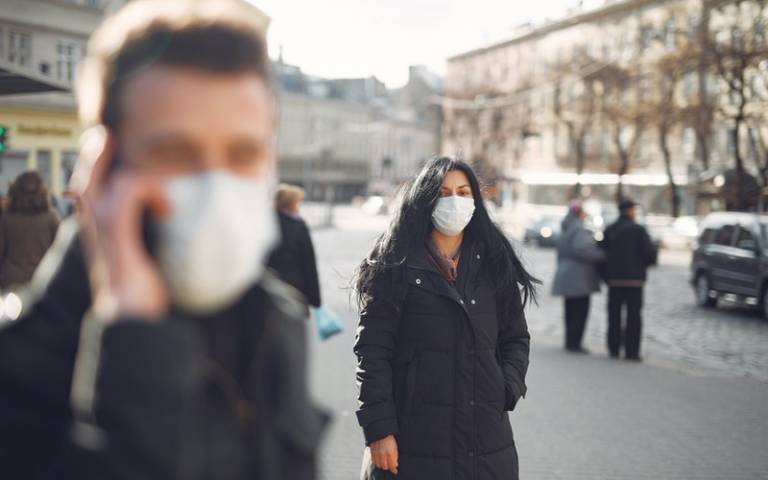Strategies to combat Covid-19 confused by rapidly changing research, leading scientists say
17 December 2021
Policy missteps will continue to overshadow the global response to Covid-19 because policymakers are overwhelmed with rapidly shifting research evidence, according to scientists including IOE Professor James Thomas.

Faced with new challenges such as the Omicron variant, decision-makers can’t keep up with the flood of new research studies when drawing up policy. This results in muddled strategies, erodes trust in science and fuels controversy, according to the authors writing in the peer-reviewed journal Nature.
They are now urging countries to adopt a new scientific approach that summarises scientific research in near real time. This system, called ‘living evidence’, produces rigorous and ready-to-go summaries of all relevant scientific research, and keeps them up to date by rapidly incorporating new research findings.
Policy makers and clinicians can draw on a form of scientific knowledge that is both rigorous and trustworthy, and includes all the latest science – something that has not been available previously.
“Decisions relevant to global challenges must be informed by the best available evidence,” says lead author Julian Elliott from the Australian Living Evidence Consortium at Cochrane Australia, Monash University, Melbourne.
“Otherwise, policy missteps with every new challenge of the pandemic, such as the rise of the Omicron variant, will lead to unnecessary and untold health, social and economic impacts.
“It should no longer be acceptable for evidence to be out of date, biased or selective. Without trustworthy and up-to-date research reviews, the world risks making ill-informed decisions and wasting resources.
“We call on policymakers as well as researchers in every scientific field, and their funders, to adopt the living-evidence model. Science doesn’t stand still, neither should its translation into action.”
Typically, national policies and guidelines draw on formal summaries of research. Known as systematic reviews, scientists combine evidence from individual studies then analyse the data to calculate an overall result.
Used since the 1980s, this approach is aimed at creating a clear understanding of the scientific knowledge available. Systematic review has been the basis for high-impact decision-making not only in health but also in other fields such as education and poverty eradication.
However, the authors say these reviews are often of poor quality, duplicative and out of date, especially when there is ‘a flood of new research’ such as in the current pandemic.
Living evidence overcomes these issues. Researchers continuously identify new studies by monitoring databases of the latest journal publications and other digital collections, often enabled by artificial intelligence and other technologies.
Professor James Thomas, who developed a program to map worldwide living evidence on COVID-19 said: “We have been working on approaches to keep systematic reviews up to date for many years, and have built machine learning systems to help authors navigate the increasing deluge of scientific papers. The COVID-19 pandemic has demonstrated the importance of being on top of the latest research, and our research has contributed to pandemic response work by providing several continuously updated (or ‘living’) maps of research.”
Professor Thomas is Professor of Social Research and Policy in IOE’s Social Research Institute. He is Director of the EPPI-Centre's Reviews Facility for the Department of Health, England, which undertakes systematic reviews across a range of policy areas to support the department.
Links
- Read the article 'Decision makers need constantly updated evidence synthesis'
- View Professor James Thomas’s research profile
- Evidence for Policy and Practice Information and Co-ordinating Centre
- Social Research Institute
- COVID-19 research at IOE
 Close
Close

